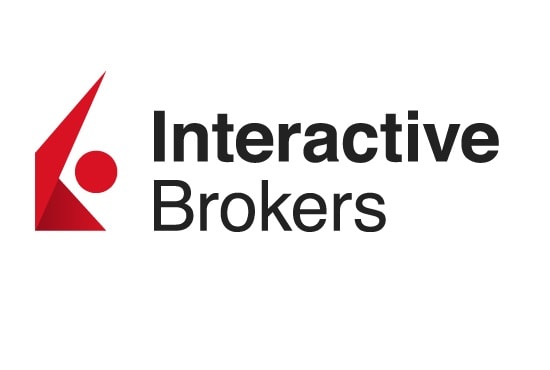Interactive Brokers | Vanguard | |
Monthly Fee | 0% – 0.75%
$0 online commission on U.S. listed stocks and ETFs, Options: $0.15 – $0.65 per-contract, Futures: $0.25 – $0.85 per-contract. For Interactive Advisors: asset-based management fees of 0.10% to 0.75% | Up to 0.30%
$0 online commission on U.S. listed stocks, mutual funds and ETFs, options: $0.65 per-contract, Vanguard Digital Advisor – 0.015%, Vanguard Personal Advisor: 0.03%, Vanguard Personal Advisor Select: up to 0.03%, Vanguard Wealth Management: up to 0.03% |
Account Types | Brokerage, Retirement | Brokerage, Retirement, Wealth Management |
Savings APY | 0.00% – 3.351% | 3.65% |
Minimum Deposit | $0 | $0 – $5M
Vanguard Brokerage: $0,
Vanguard Digital Advisor: $100,
Vanguard Personal Advisor: $50,000,
Vanguard Personal Advisor Select: $500,000,
Vanguard Wealth Management: $5M |
Best For | International Investors, Advanced Traders | Long Term Investors, Retirement, Robo Advisor, Wealth Management |
Read Review | Read Review |
Interactive Brokers vs. Vanguard: Compare Features
Vanguard is a leading choice for long-term, cost-conscious investors due to its low fees, extensive range of low-cost funds, and robust retirement planning tools.
Vanguard | Interactive Brokers | |
|---|---|---|
Investing Options | Full Access To Almost Any Asset | Full Access To Almost Any Asset |
Investing Types | Stocks, Options, ETFs, Bonds & CDs, Mutual Funds, Money Market Funds | Stocks, Options, Futures, ETFs, Crypto, Bonds & CDs, Margin, Mutual Funds, Hedge funds, Forex, Commodities |
Automated Investing | Yes | Yes |
Paper Trading | No | Yes |
IPO Access | No | No |
Dedicated Advisor | Yes | No |
Tax Loss Harvesting | Yes | No |
In contrast, Interactive Brokers (IBKR) is more suited for active traders, offering advanced trading tools and extensive market access.
-
Self Investing And Fundamental Analysis Options
Vanguard is better for investors who maintain a high value of portfolio, while IBKR may be more attractive for active investors.
Vanguard is ideal for long-term investors who want access to a wide variety of assets, like ETFs, mutual funds, stocks, bonds or CDs.

They offer great tools for value investors like Portfolio Watch, Portfolio Tester, cost basis analysis and analyze hypothetical changes to holdings.

On the other hand, IBKR is a powerhouse for both new and experienced investors. Investors can trade stocks, options, futures, forex, bonds, ETFs, and mutual funds, along with access to global markets in over 150 countries.

IBKR also provides a vast selection of global markets and asset classes, offering unmatched access for those interested in international investing. IBKR’s offer great research tools, including the IBKR Global Analyst and PortfolioAnalyst.
-
Trading Options And Technical Analysis Tools
Interactive Brokers provides superior tools and options for traders, particularly those focused on technical analysis.

The platform’s standout feature is the Trader Workstation (TWS), which caters to advanced traders by offering over 100 technical indicators, such as moving averages, Bollinger Bands, RSI, and MACD.

IBKR paper trading can be great for beginners and those who want to train themselves before jumping into deep water.
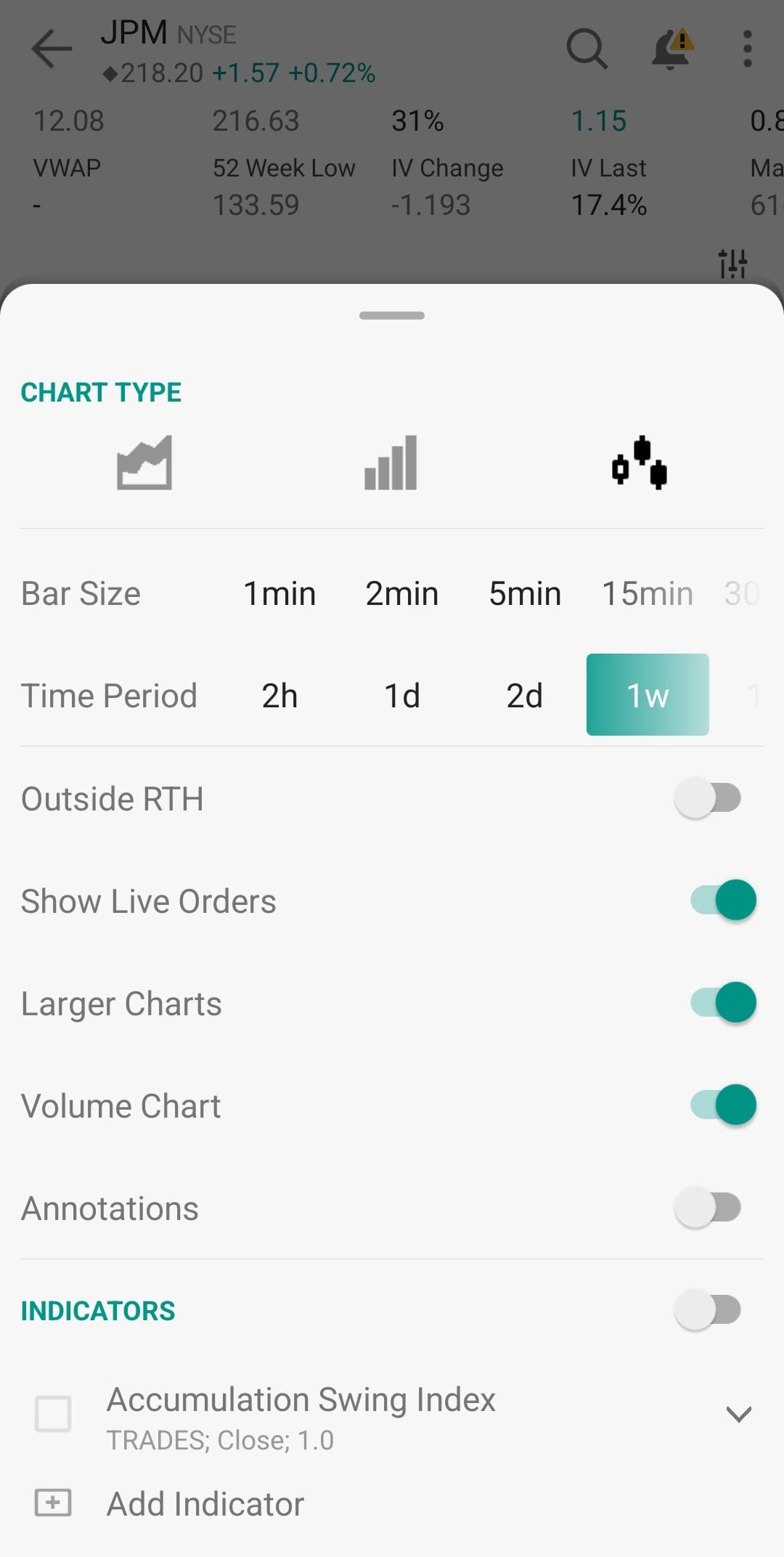
In addition to technical indicators, TWS includes real-time data feeds and sophisticated pattern recognition tools, which automatically detect chart patterns like head and shoulders, triangles, and trendlines.
In contrast, Vanguard’s platform emphasizes low-cost funds and straightforward trading options.
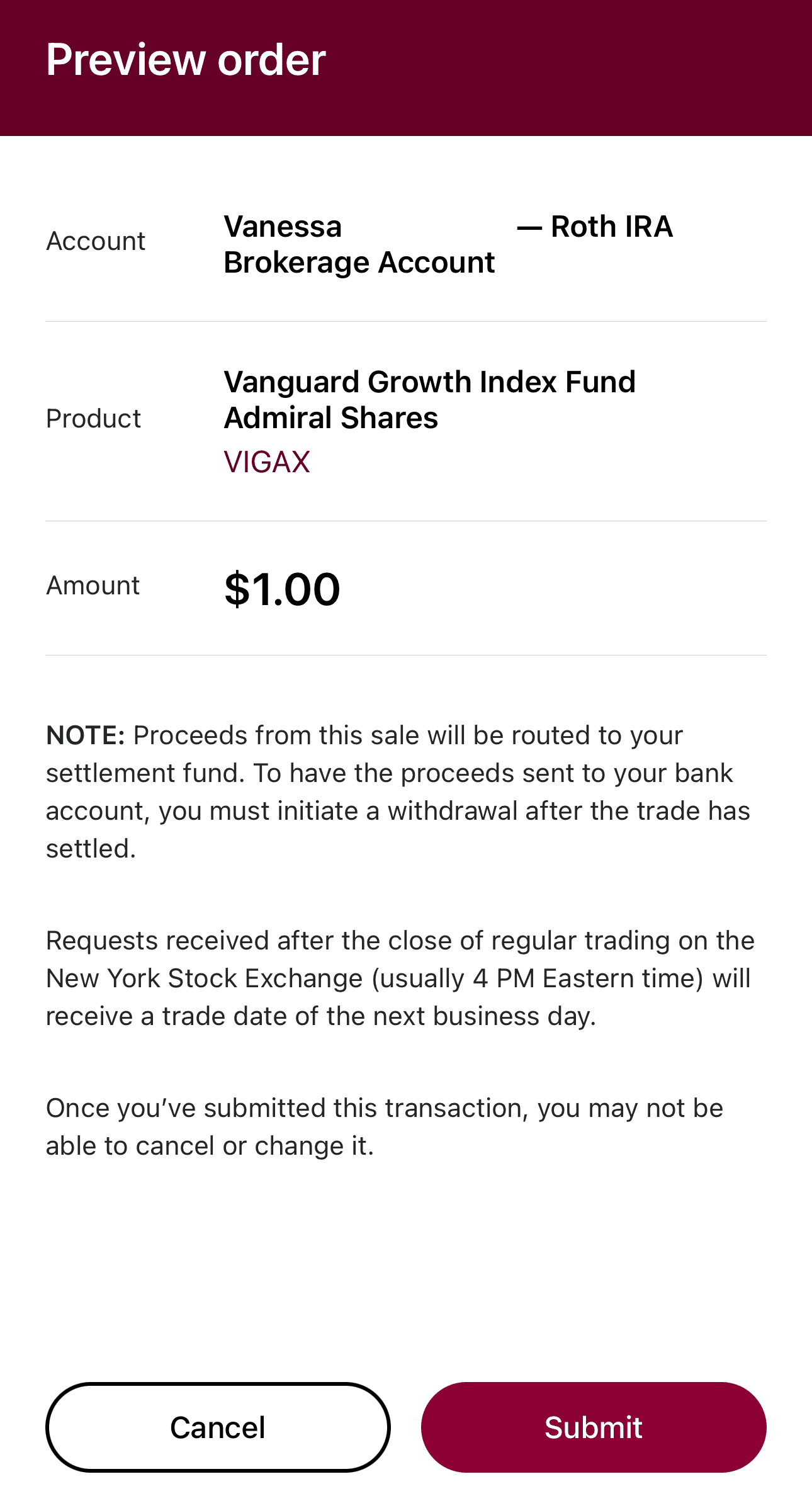
While it supports buying and selling securities and provides advanced data for fundamental analysis, its offerings for active traders and those interested in technical analysis are relatively limited.
-
Robo Advisor And Automated Investing
Vanguard Digital Advisor provides a more comprehensive experience and includes features not available through Interactive Brokers (IBKR).
However, IBKR's diverse portfolio options merit serious consideration when selecting a robo-advisor.
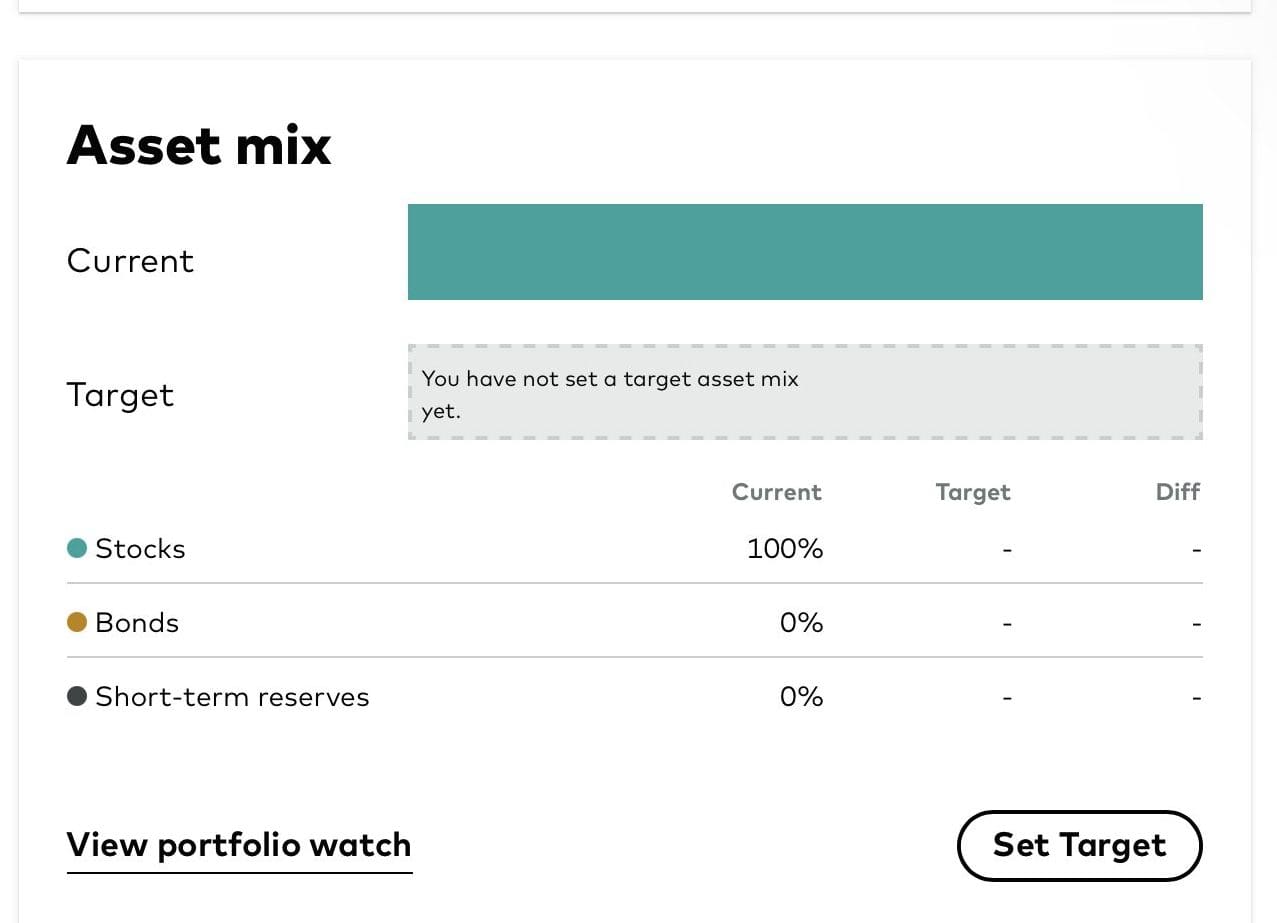
For passive investors, Vanguard’s Digital Advisor utilizes a blend of Vanguard index funds and ETFs, strategically balancing stocks and bonds in accordance with the investor’s risk tolerance. The service charges an advisory fee of up to 0.15%.
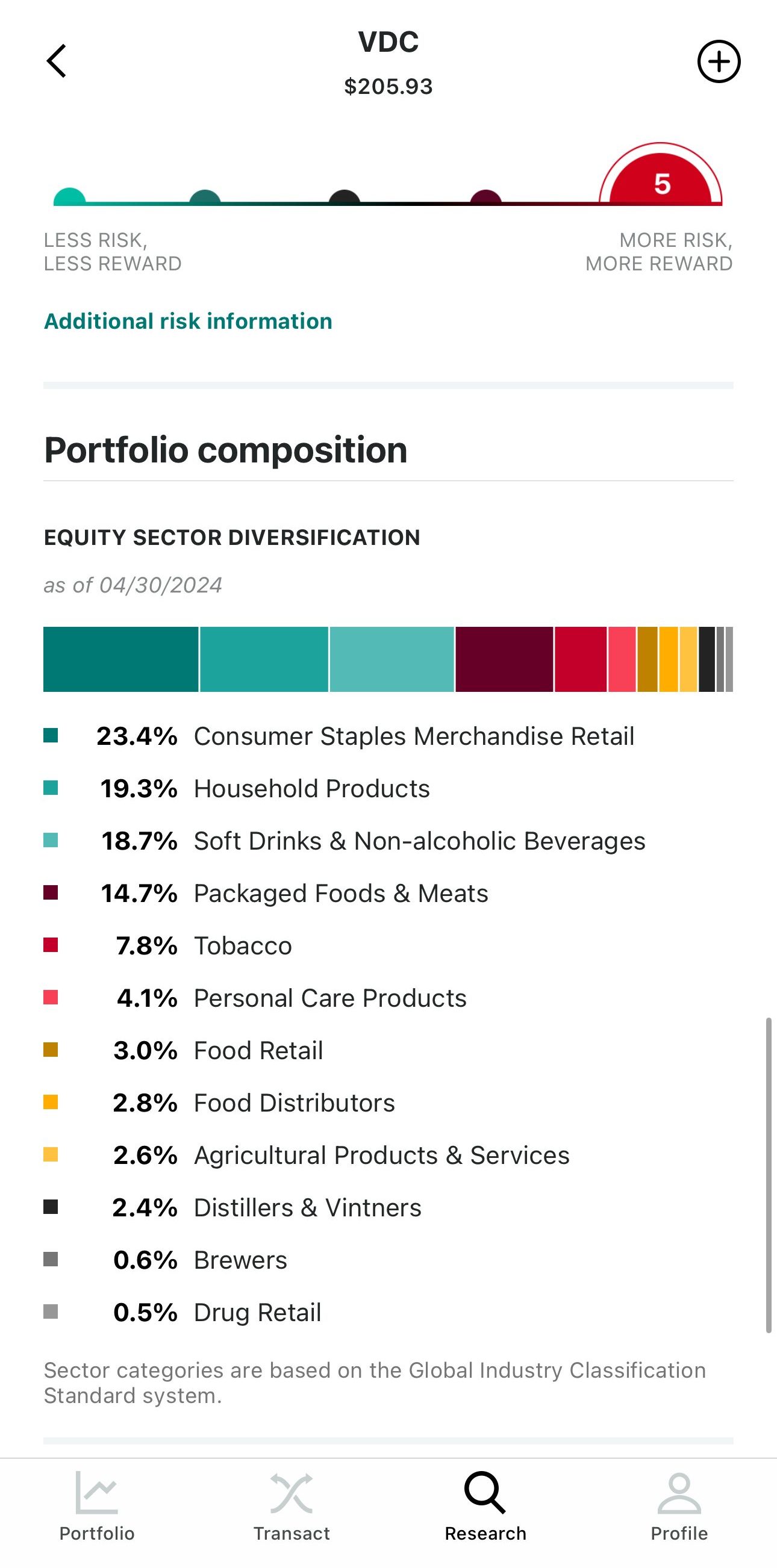
For those who prefer a combination of automated technology and human guidance, Vanguard’s Personal Advisor offers professional financial advice alongside its robo-advising service for a higher fee of 0.30%.
On the other hand, IBKR’s automated investing platform, Interactive Advisors, caters to investors seeking more customization and control, even within a robo-advisor framework.
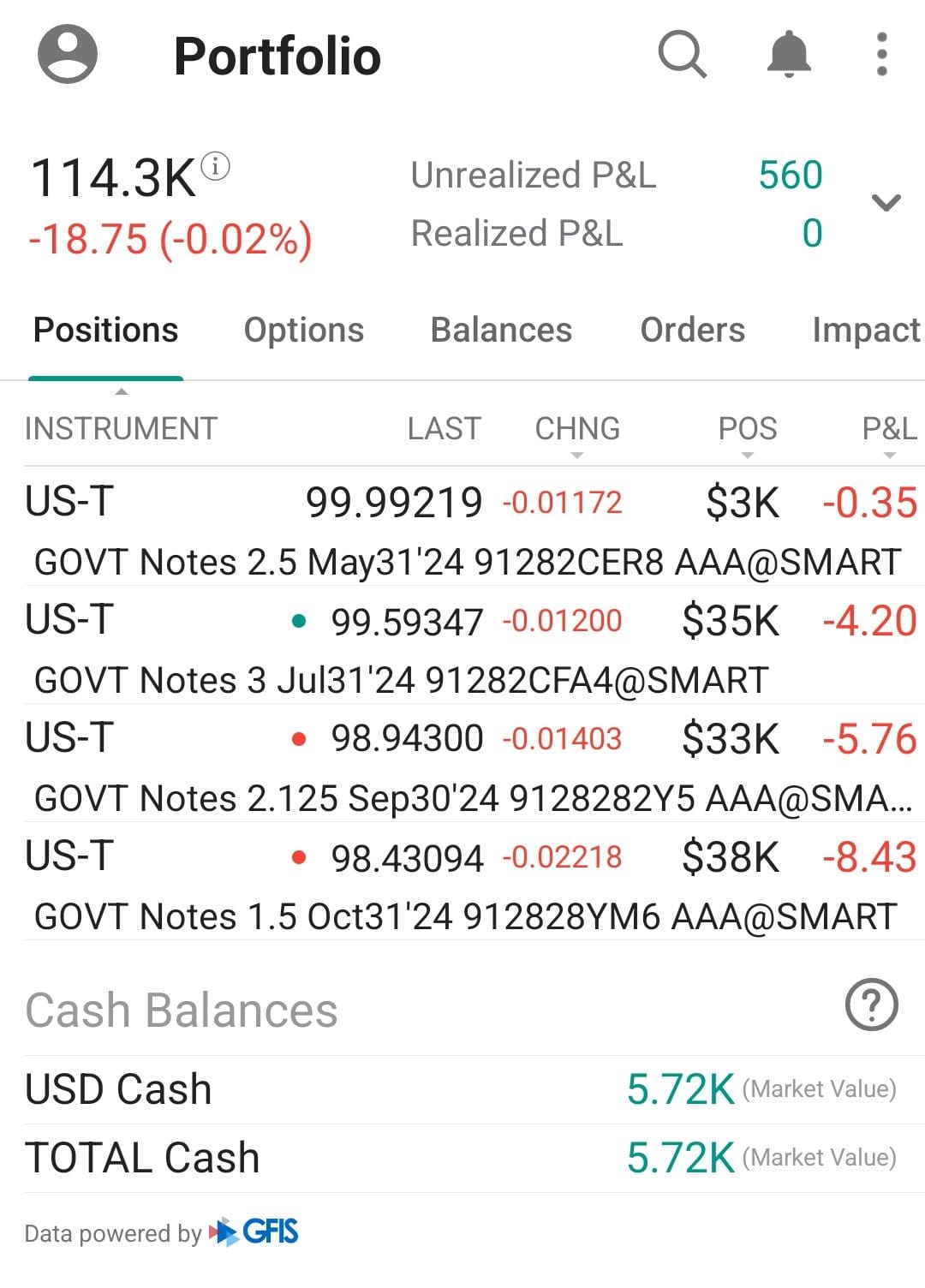
It provides a wide selection of portfolios, color-coded by risk level and investment strategy, offering choices such as socially responsible and income-focused portfolios.
-
Retirement Accounts
Vanguard stands as an excellent choice for investors prioritizing retirement-focused strategies, particularly in retirement planning.
Its services are tailored towards long-term retirement goals, making it highly suitable for those with a retirement-oriented investment approach.
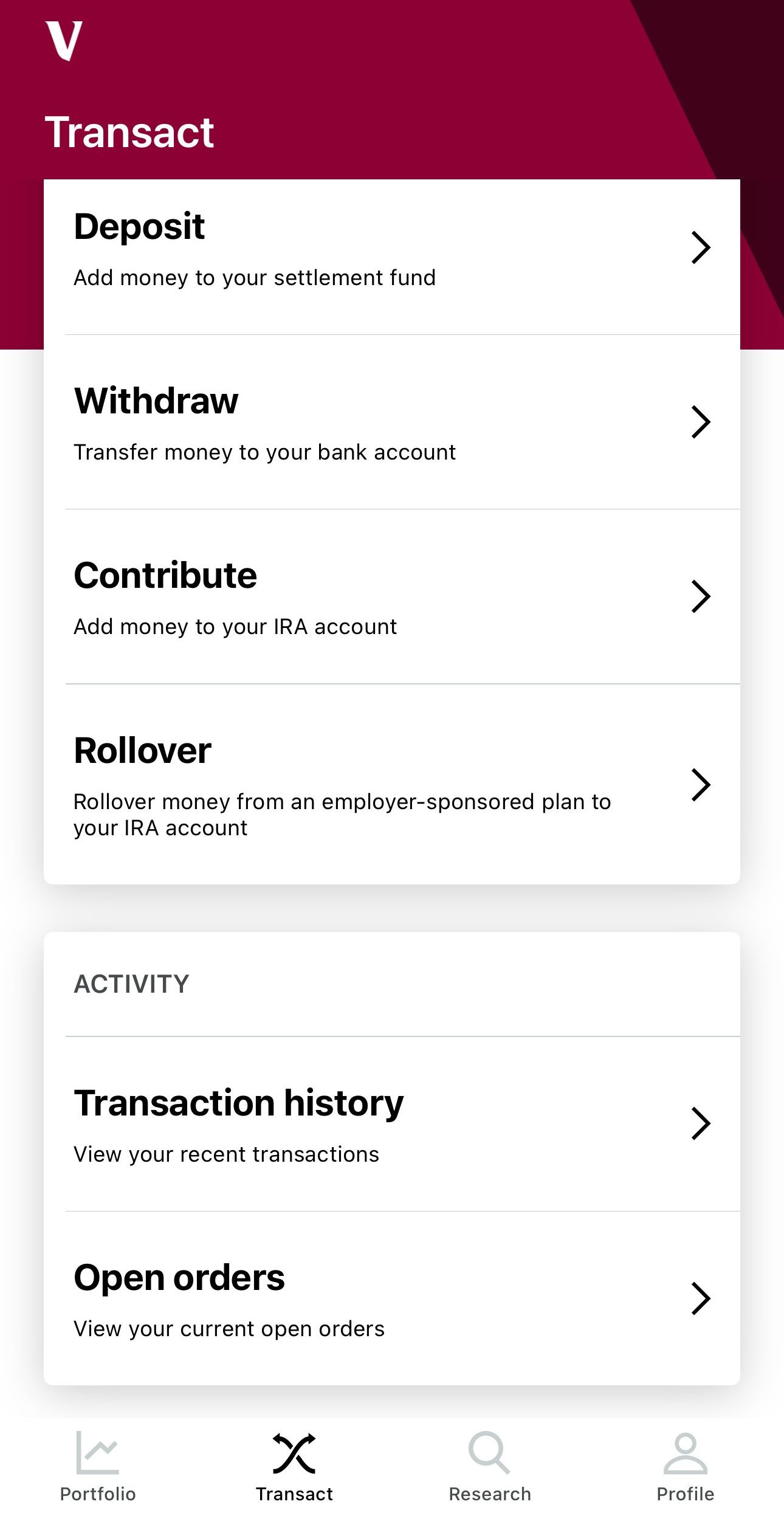
Vanguard is widely recognized for its comprehensive retirement account offerings, including Traditional and Roth IRAs, SEP IRAs, and SIMPLE IRAs.
Additionally, Vanguard provides robust tools for setting financial goals, estimating future expenses, and tracking IRA contributions.
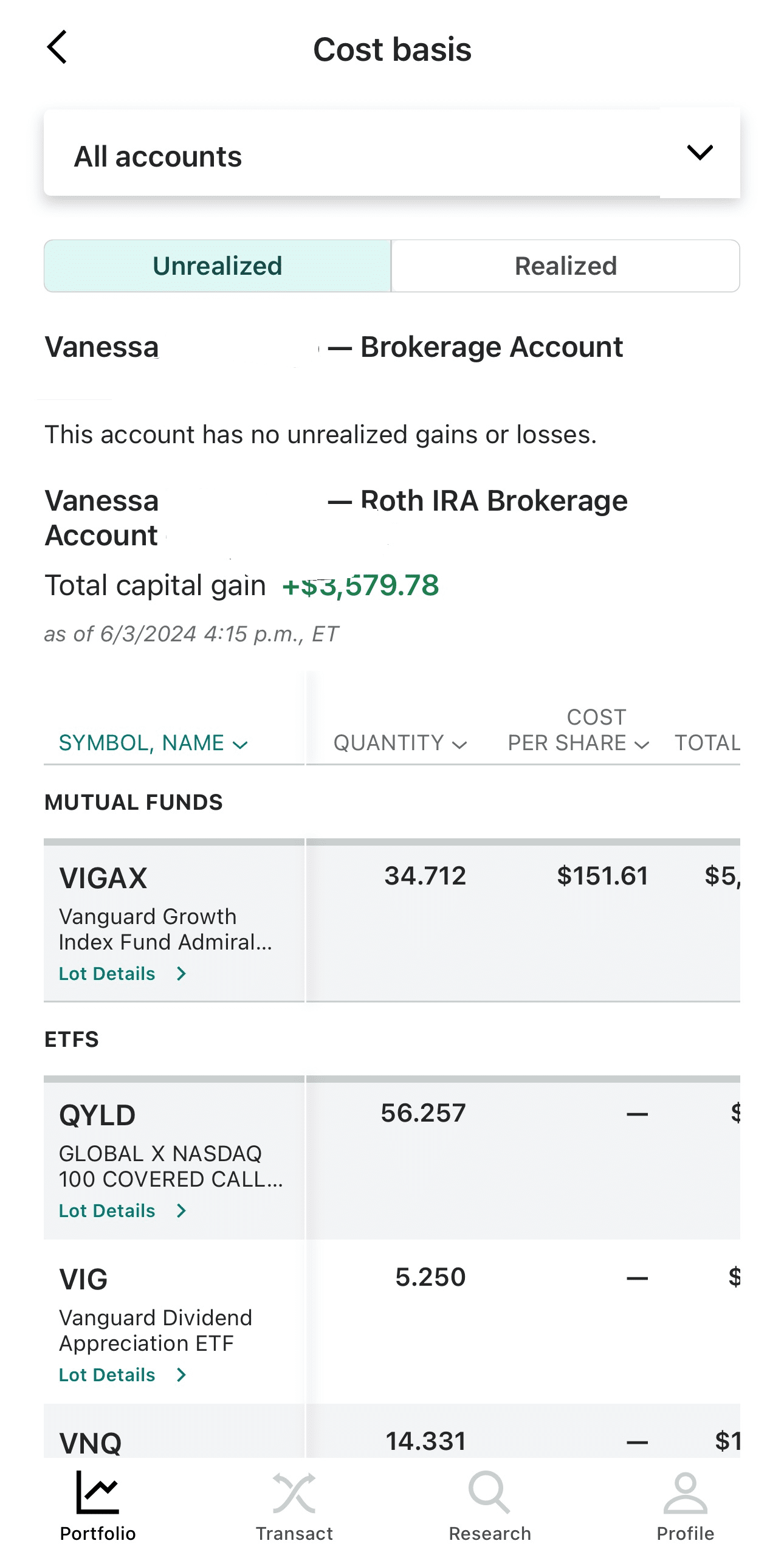
On the other hand, Interactive Brokers (IBKR) also provides a wide range of IRA options, including Traditional, Roth, SEP, SIMPLE, and Inherited IRAs.
These accounts are available in both cash and margin formats, offering flexibility to suit various investment strategies.
-
Fees
While IBKR's fee structure can be more complex, it generally proves more cost-effective than Vanguard.
Vanguard charges up to 0.30% for account management, with $0 commissions on U.S. stocks, mutual funds, and ETFs. Options trades are priced at $0.65 per contract.
Vanguard | Interactive Brokers | |
|---|---|---|
Fees | Up to 0.30%
$0 online commission on U.S. listed stocks, mutual funds and ETFs, options: $0.65 per-contract, Vanguard Digital Advisor – 0.015%, Vanguard Personal Advisor: 0.03%, Vanguard Personal Advisor Select: up to 0.03%, Vanguard Wealth Management: up to 0.03% | 0% – 0.75%
$0 online commission on U.S. listed stocks and ETFs, Options: $0.15 – $0.65 per-contract, Futures: $0.25 – $0.85 per-contract. For Interactive Advisors: asset-based management fees of 0.10% to 0.75% |
In contrast, IBKR provides ultra-low commissions, particularly advantageous for high-volume traders, along with access to global markets at competitive rates for international trades.
-
Cash Management And Savings Rates
Both brokers offer competitive rates on uninvested cash, but IBKR offer more features for money management.
IBKR’s Universal Account focuses on investment, offering highly competitive interest rates on cash balances, although it requires a $10,000 minimum to qualify for the highest rates.
The account also supports mobile check deposits, direct deposits, and bill payments.
Vanguard | Interactive Brokers | |
|---|---|---|
Savings APY | 3.65% | 0.00% – 3.351% |
Vanguard’s Cash Plus Account earns interest on balances and offers money market funds, though the latter requires a $3,000 minimum investment.
-
Wealth Management Options
Vanguard stands out as the superior choice for wealth management, as Interactive Brokers does not provide personalized wealth management services.
Vanguard’s Wealth Management services are designed for high-net-worth individuals, particularly those with a minimum of $5 million in investable assets.

The services emphasize comprehensive, long-term financial planning, including investment management and estate planning.
By integrating automated solutions, such as robo-advisors, with guidance from certified financial planners, Vanguard offers customized strategies tailored to clients' specific financial goals.
These strategies focus on minimizing tax liabilities and ensuring thorough preparation for the future, including detailed estate planning.
Bottom Line
On the bottom line, Vanguard provides a broader range of options for investors, including diverse retirement plans, robo-advisor services, and comprehensive wealth management solutions.
In contrast, Interactive Brokers is more suited to active traders, offering superior technical tools and access to unique assets, such as cryptocurrencies, forex and commodities
Interactive Brokers vs. Other Trading Platforms
Schwab provides broader tools and analysis options for long-term, value investors, while Interactive Brokers is more suited to active traders
Schwab vs. Interactive Brokers: Which Brokerage is Right for You?
If you're an experienced investor or trader, IBKR may be a better option. If you're a Chase customer or prefer simplicity, consider JP Morgan.
Interactive Brokers vs. J.P. Morgan Self-Directed Investing: Which Broker Wins?
Both platforms have great options for investors, but Fidelity excels in comprehensive retirement planning and cash management options
Interactive Brokers vs. Fidelity: Which Brokerage Suits Your Investing Style?
Webull offers user-friendly tools and perfect app design, while IBKR is best suited for more experienced investors and global market access.
Interactive Brokers vs. Webull: Compare Brokerage Account Options
Merrill Edge stands out for its interface and integration with BofA, but IBKR is the ultimate winner for trading and investing. Here's why:
Interactive Brokers vs. Merrill Edge: Compare Brokerage Account Options
IBKR shines with its advanced trading tools and extensive market access. E-trade wins for retirement accounts, wealth management, or banking.
Interactive Brokers vs. E-Trade: Compare Brokerage Account Options
Robinhood is an excellent choice for beginner and casual investors, but IBKR is better suited for experienced investors and advanced traders.
Interactive Brokers vs. Robinhood: Compare Brokerage Account Options
Vanguard vs. Competitors: How Does It Stack Up?
While Vanguard appeals to buy-and-hold investors, Schwab’s platform is designed for those who want to engage actively with the market
Vanguard is our pick for long-term investors, wealth management, or retirement, while E-Trade may be better for traders active investors
Vanguard may be a better option for value, long-term investors, while Merrill offers better trading options. Here's a side-by-side comparison
Vanguard vs. Merrill Edge: Which Brokerage is Right for You?
Vanguard offers more options for investors, including retirement, robo advisors, and wealth management, while Robinhood is best for traders.
Vanguard offers a better approach for serious investors, while JP Morgan's self-directed is better for beginners and advanced traders
Vanguard vs. J.P. Morgan Self-Directed: Which Broker is Best For You?
Fidelity is our choice due to its better retirement options and more extensive trading app. But, the differences are insignificant.


